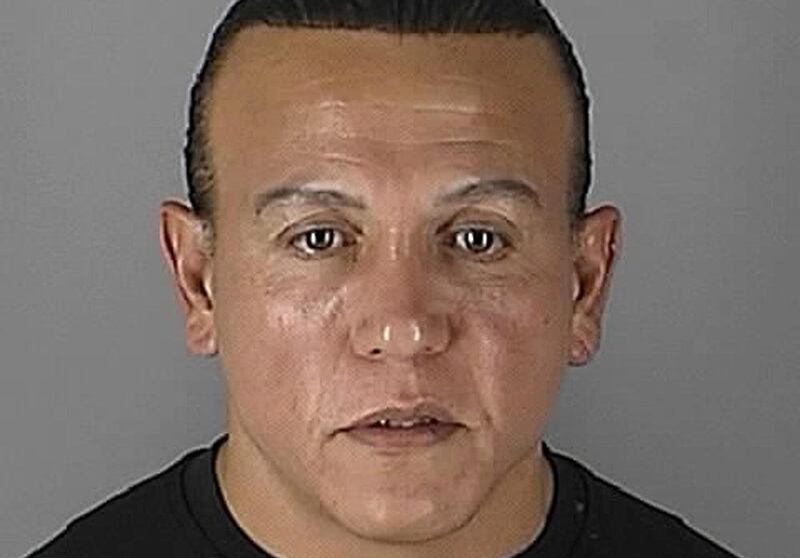It was inevitable. A Donald Trump fan has been arrested for sending bombs to more than a dozen of the US president's most prominent liberal opponents, and CNN, his most hated news organisation. The only real question is why did it take so long?
Mr Trump obviously doesn’t take his own words seriously. He’s a huckster who leapt from reality television into politics, not because he wanted to achieve something, but simply because he discovered he could.
Friend and foe alike agree that he doesn’t really believe in anything and only responds to whatever he thinks makes him look good.
Mr Trump’s whole presidency has been an elaborate ego trip, increasingly unmoored from anything resembling reality, as his proclivity for lying has spun wildly out of control.
Most recently, he was painting bizarre fantasies about whole towns of Americans rapturously applauding as their neighbourhoods were liberated from rampaging Latino gangs.
It’s all a game to him. But what is anyone who really believes him supposed to think and do?
Recently, he’s been telling his followers that Democrats are “evil” and operating with impunity, a lawless, angry mob intent on filling the country with violent street gangs and Middle Eastern terrorists in a deliberate attempt to destroy American society. They despise the United States and, according to him, are determined to “turn it into Venezuela”.
The media is “the enemy of the American people”; its reporting “so bad and hateful that it is beyond description”. It is also, according to Mr Trump, responsible for “a very big part of the anger we see today”.
Mr Trump doesn’t have political opponents or critics, only truly evil, destructive, dangerous enemies.
There is little sincerity here and lots of his supporters are entertained by his hyperbole. Many mistake his lack of filters with honesty and his lack of decency with a refreshingly blunt refusal to sound “like a politician”.
But some believe every word of it.
Mr Trump wants everyone to place their trust in him, and give him complete, unwavering political obedience and unfettered authority. But can that really be enough, if the dangers are as extreme as he insists?
He has suggested, many times, what kind of response he favours.
At his campaign rallies, Mr Trump repeatedly encouraged his supporters to physically attack protesters or hecklers, saying that his critics should be "carried out on a stretcher", and promising to pay legal bills for anyone willing to make that happen.
He strongly implied that if Hillary Clinton had been elected, “Second Amendment people” (gun fanatics) would have had to stop her. Recently, he praised a congressman for assaulting a reporter, saying: “Any guy that can do a body slam, he’s my kind of guy.”
In his comments regarding world leaders, Mr Trump seems particularly impressed with murderous ruthlessness. He remains an advocate of torture and an unapologetic proponent of intentional police brutality.
So, in addition to cultivating a supposedly righteous rage in his supporters, he has consistently promoted an atmosphere of violence.
Of course, most of his followers know that he is at least exaggerating, and that he is usually not to be taken literally, and sometimes not seriously either.
Most of the rest will be inhibited by moral qualms, or a sense of self-preservation, and won’t lash out.
But some people, often loners with little left to lose, will fully embrace both Mr Trump’s alarming diagnosis and his prescription of therapeutic violence, and decide that they have to act.
It’s the same syndrome that the paranoid and chauvinistic demagogues of Al Qaeda and ISIS count on, especially when urging lone-wolf terrorist acts.
More than anything else, Mr Trump has been upset that these attempted bombings have distracted attention from his new drug price initiative and, along with many of his strongest supporters, suggested the whole thing was a stunt by liberals to discredit him. In a tweet, he dismissed the bombs innocuously as “packages and devices”.
In addition to suggesting that media organisations such as CNN deserve such hatred, and leading a crowd in chants of “fake news” and “lock him up” − referring to one of the bomb recipients, philanthropist George Soros − Mr Trump has refused to tone down his rhetoric.
When questioned, he said, “I could really tone it up.” He also rejected any suggestion of his own responsibility, insisting: “There’s no blame. There’s no anything.”
But Mr Trump paints a picture of absolute evil and depravity on the part of liberals and Democrats in general, the media, and any other potential or real opponents. Anyone who takes even a small percentage of what he says as truth is guaranteed to feel enraged and besieged.
Mr Trump and his supporters have occasionally hinted at the possibility of mass violence and civil unrest throughout the country if he were ever truly thwarted. Is anyone confident that, as a last resort to save himself, he wouldn’t at least be tempted to try to unleash widespread mayhem?
Now one unhinged individual has taken his words literally, seriously, and to their logical conclusion. He is unlikely to be the last, especially if Mr Trump’s presidency is ever genuinely threatened by scandal or potential electoral defeat.
Hussein Ibish is a senior resident scholar at the Arab Gulf States Institute in Washington





